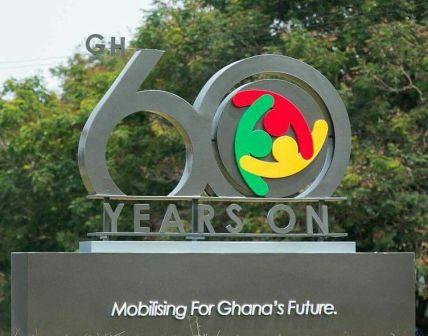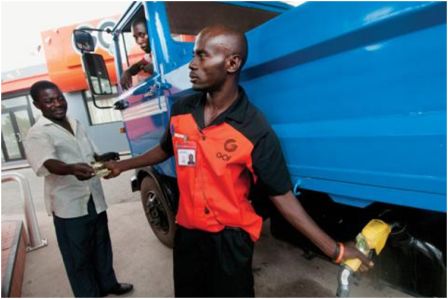Press statement on the need for transparency and accountability in Ghana’s petroleum laws organized by the Civil Society platform on oil and gas on Friday, the 5th November, 2010
The discovery of oil in Ghana offers a window of opportunity for the socio-economic development of the country. However, if the petroleum sector is not managed and regulated in an efficient, transparent and accountable manner these opportunities will not be realised. The Civil Society Platform on Oil and Gas is concerned about the state of preparedness of the country to ensure transparent, accountable and sustainable management of the petroleum resources.
Our Platform is particularly concerned with proposed amendments of key clauses within the proposed Petroleum Revenue Management Bill 2010 that provides for a citizen-based transparency and accountability framework for ensuring transparent management of petroleum revenues. We are equally disturbed about the absence of transparency provisions in the Petroleum (Exploration and Production) Bill 2010, which does not provide for an open and competitive bidding process for oil blocks, and the disclosure of petroleum agreements; but gives the Minister of Energy too much power at the expense of an independent Petroleum Regulatory Authority which shall be established by law to regulate petroleum operations. These are not good signs for Ghana especially as many resource rich countries that undermined transparency have not escaped from the “curse” of oil. Ghana certainly cannot go this way.
The citizens of Ghana must have the opportunity to participate in decision making processes within the petroleum sector. Citizens should be actively involved in the determination of development priorities to which petroleum revenues shall be used. This includes debating whether spending decisions and prospects adhere to the national development priorities. The information on citizens’ assessments and preferences on the use and management of petroleum revenues should be disseminated to government officials, who, as representatives of the people, are required to act upon these preferences.
The provision by the Petroleum Revenue Management Bill 2010 for the establishment of a Public Interest and Accountability Committee (PIAC) has been a big relief to many Ghanaians as it offers a platform for citizens’ scrutiny of petroleum revenue management in addition to other officially known agencies of state. During nation-wide public consultations by the Ministry of Finance as well as the Civil Society Platform on Oil and gas on the PRMB, it became clear that many Ghanaians welcomed this instrument of public oversight and viewed it as a new initiative that will need a constitutional backing if approved by Parliament.
It has therefore become worrying to us that members of the joint select parliamentary Committees on Energy and Mines and Finance have proposed amendments to and deletion of some sections of the provisions for transparency especially those that are critical for effective public oversight by the proposed Public Interest and Accountability Committee.
Specifically, we detest the proposed amendment to Clause 58 and the deletion of Clause 60. Currently as the proposed bill stands Clause 58 reads: ‘The Public Interest and Accountability Committee shall’
The proposed amendment seeks to delete the words ‘Public Interest’ and
Clause 60 reads:
(1)The records of petroleum receipts in whatever form for the purpose of transparency and accountability shall simultaneously be published by the Minister in the Gazette and in at least two national daily newspapers, no more than thirty working days after the end of the applicable quarter.
(2) The information required to be made public shall also be published online on the websites of the Ministry of Finance and Parliament effective the publication date.
The proposed amendment to the bill seeks to delete this clause.
These two clauses are the embodiment of transparency within the bill and promote public trust within the revenue management system. In addition they demonstrate a genuine commitment to transparency and accountability in the petroleum sector and exhibit best international practice.
The PIAC does not undermine or usurp Parliament’s oversight role but seeks to strengthen it. The PIAC works alongside parliament and indeed reports to parliament on its findings. MPs are our representatives but they are also members of political parties who may sometimes be whipped to take political positions on matters of national interest. They also need to be checked in between elections and we think that the PIAC is one of the bold measures to provide a non-partisan public oversight on both the Executive and Parliament.
Transparency and accountability are essential elements in ensuring that the citizens of Ghana gain the maximum benefits from our natural resources. Therefore it is incumbent on Government and Parliament to make sure that provisions are made for these vital ingredients.
As you may be aware, in our resolve to uphold the democratic rights of Ghanaians to transparent and accountable management of public wealth, we launched our e-petition to mobilize ordinary Ghanaians who will eventually be the victims of any oil ‘curse’ to send a clear message to Government and Parliament, that we will not compromise the attempt to stifle our right to information and the necessity of ensuring public accountability in the management of Ghana’s new found wealth.
We are happy to announce that since we launched the campaign a month ago, we have received more than 41, 000 signatures from Ghanaians at home and abroad, including about 26,000 friends of Ghana around the world who have followed Ghana’s democratic success and who do not want to see a slip as they have seen happen to other developing countries.
All these petitioners are calling for an open and competitive bidding for oil blocks, disclosure of petroleum contracts, an independent Petroleum Regulatory Authority and a strong Public Interest and Accountability Committee in our bills which are now before Parliament.
For purposes of public record and posterity, we wish to also announce that from this press conference, we will march to Parliament House and present our petition to Parliament through the Rt. Hon. Speaker of the House. We call on all Ghanaians to continue the dialogue with our representatives and keep our resolve firmly in our belief that we can save our country from bad laws that stifle transparency and accountability in the management of public resources.
At this juncture, we wish to use this platform to commend our Government and all Ghanaians and especially, the Ghana Extractive Industries Transparency Initiative for all the hard work over the years which has ensured Ghana’s current status as an EITI compliant country. This places more responsibility on all Ghanaians to maintain the standards we have chalked. The Government’s extension of EITI to the oil and gas sector even puts on us a greater responsibility to uphold high standards of transparency and accountability in the management of these resources. It will therefore compromise our enviable record as a transparent and democratic country if we make petroleum laws that do not reflect these tenets which have won our country high international standing.
Thank You
Ghana by the Civil Society Platform on Oil and Gas
Stay with Sierra Express Media, for your trusted place in news!
© 2010, https:. All rights reserved.





